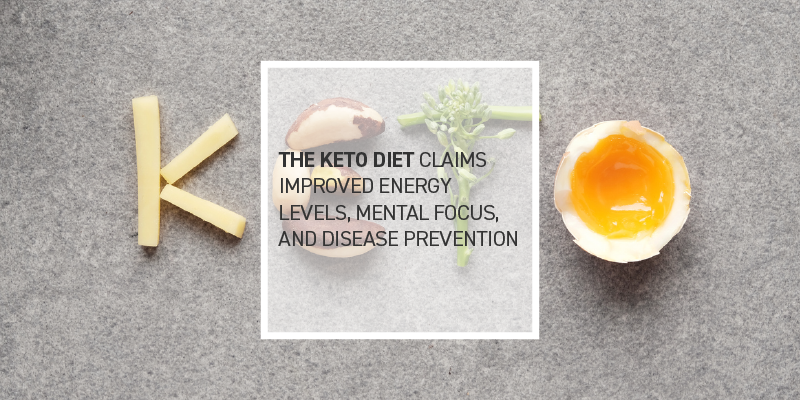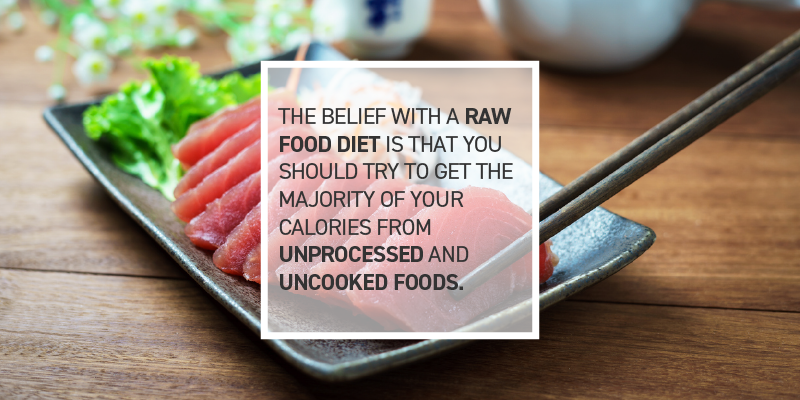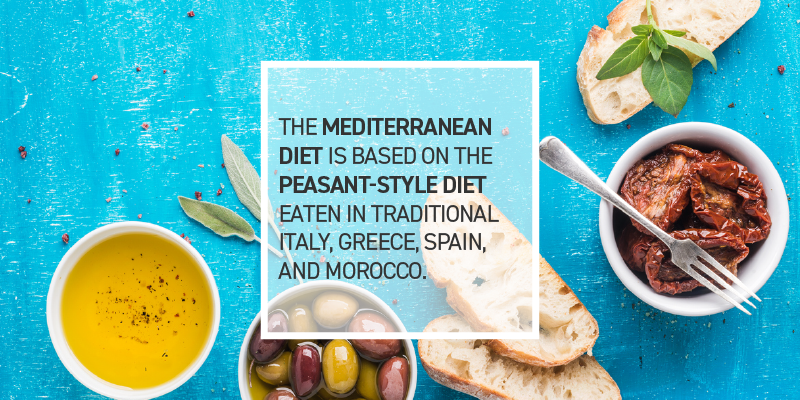
Just when you thought there couldn’t be another theory on how to best lose weight or get healthy or cleanse, here comes another one.
Diet trends are hotter than ever, with billions of dollars being spent on trying to “eat healthily.” New plans pop up in the media every year. It’s difficult to decipher the hype from the hope. Some diets are completely legit. Some diets are just smoke and mirrors, and others can be downright dangerous. They all claim weight loss or better health.
Here’s a look at a few that are trending now.
Ketogenic Diet

The ketogenic (keto) diet has become probably the hottest diet trend of 2018. Being very low in carbohydrates and very high in fat puts your body into a state of ketosis, which forces your body to use fat and its byproducts (ketones) as a primary source of fuel. There are some uncomfortable side effects: fatigue, headaches, constipation, bad breath, and nausea.
Sadly, the weight loss benefits are only short term. The keto diet claims improved energy levels, mental focus, and disease prevention, though there is currently very little evidence to back these up. It actually eliminates many-core food groups (fruits, vegetables, dairy products, and whole grains) which are all essential for your health and well-being. Research shows the keto diet actually mimics starvation and will not sustain you long-term.
There is published research that suggests following this diet could have a positive effect on blood sugar, insulin levels, and triglycerides which could be more effective for weight loss in certain individuals.
Low FODMAP
FODMAPs are sugars that aren’t absorbed properly in the gut and may trigger Irritable bowel syndrome (IBS). Low FODMAP is the new gluten-free diet. It limits foods that commonly cause bloating, cramps, and flatulence in people with IBS. These would include processed meats, onion, garlic, wheat products, and certain fruits and veggies which are perfectly fine foods for anyone who doesn’t suffer from those digestive issues.
Using a process of elimination, this diet can help to identify foods likely to trigger these symptoms, but it’s not necessarily beneficial otherwise.
Raw Food Diet

The belief with a raw food diet is that you should try to get the majority of your calories from unprocessed and uncooked foods. Rawists believe that eating foods above a certain temperature will destroy enzymes that provide many health benefits.
While eating lots of minimally processed fruits, veggies, and grains is typically best, processing actually boosts the bioavailability of several key nutrients, including phytonutrients. Carolyn Land Williams, Ph.D., RDN, points out that it’s “very hard to get in enough daily energy or nutrients” so nutrient deficiencies are likely unless intake is carefully planned. Plus following a diet like this requires a lot of complicated food preparation.
“As ‘flexitarian’ and part-time vegan, I know that eating lower on the food chain can help promote weight loss,” says Julie Upton, RD, “but I also know that caloric content isn’t related to the heated treatment of food. Skip the raw food diet and eat more healthful whole foods — cooked or raw — to help whittle your waist, not your wallet.” There’s actually very little research to support health claims.
Alkaline Diet
The alkaline diet is based on the idea that foods impact the body’s internal pH level and that replacing acidic foods with more alkaline ones improves health and possibly prevents diseases like cancer. That involves eating more fruits, vegetables, beans, nuts, and seeds and eliminating foods like meat, poultry, fish, dairy, eggs, grains, and alcohol.
Being predominantly plant-based, it’s centered around healthy food choices, so you get the added bonus of lower sodium, saturated fat, and sugar and higher in potassium and fiber. Since the body itself is designed to regulate its own pH, there is little to no research suggesting these choices impact the overall pH of the body, or that alkaline foods improve health.
Upton advises, “If following an alkaline diet helps you make healthier, less processed food choices, then go for it. However, the benefits outside of that are questionable, to say the least.”
Mediterranean

The Mediterranean diet is based on the peasant-style diet eaten in traditional Italy, Greece, Spain, and Morocco. It includes eating more fresh fruits, vegetables, grains, legumes, and nuts and using olive oil for cooking and dressing foods. Dieters also eat fermented dairy like yogurt while lowering the amount of meat they eat and increasing their fish.
This one is definitely a win according to dieticians. It’s considered to be one of the healthiest diets in the world. Research shows that it may help you to live longer, take better care of your heart, and ward off many diseases like heart disease, cancer, and diabetes. There’s even evidence it may help battle depression.
Try these tips on giving your diet a Mediterranean makeover.
Skin Care Tips From MDSUN Skin Care®
Please Visit Our Official Website - MDSUN Skin Care



Comments
Post a Comment